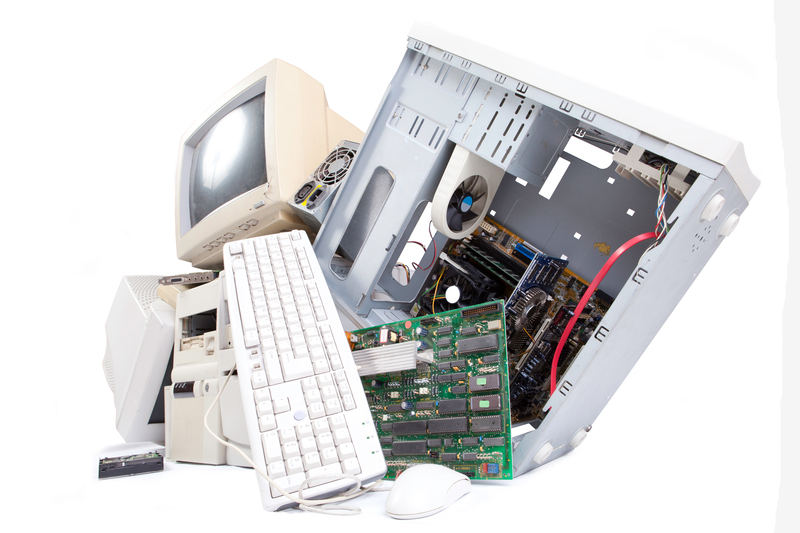Simple Tips to Make Your Kitchen Plastic-Free
Posted on 29/10/2024
Transitioning to a plastic-free kitchen may seem like a daunting task, but the benefits far outweigh the challenges. By reducing your reliance on plastic, you contribute to a healthier planet and a healthier lifestyle. Here are some simple tips to make your kitchen plastic-free that are easy to implement and can have a significant impact.
Understand the Problem with Plastic
Plastic pollution is a severe global problem. Single-use plastics, often used in the kitchen, contribute significantly to this issue. These plastics take hundreds of years to decompose, during which they break down into microplastics that contaminate soil, water, and enter the food chain. By minimizing plastic use in your kitchen, you help reduce the overall demand for plastic products and contribute to environmental sustainability.

Conduct a Plastic Inventory
The first step to making your kitchen plastic-free is to identify the plastic items you currently use. Take an inventory of all the plastic products in your kitchen, including utensils, storage containers, and packaging materials. Once you have a comprehensive list, you can start planning how to replace these items with more sustainable options.
Switch to Reusable Shopping Bags
One of the easiest ways to reduce plastic in your kitchen is to switch to reusable shopping bags. These bags are often made from durable materials like cloth or jute and can be used multiple times, unlike single-use plastic bags. Keep a stash of reusable bags in your car or near your door to ensure you always have them on hand when you go grocery shopping.
Invest in Glass or Stainless Steel Containers
Plastic food storage containers are a significant source of kitchen plastic waste. Replace these with glass or stainless steel containers, which are more durable and eco-friendly. Glass containers are microwave and dishwasher safe, making them a convenient option for food storage. Stainless steel containers are lightweight and perfect for on-the-go meals.
Avoid Plastic Wrap and Aluminum Foil
Instead of using plastic wrap or aluminum foil to cover your food, opt for more sustainable alternatives like beeswax wraps or silicone lids. Beeswax wraps are made from cotton fabric coated with beeswax, making them reusable and compostable. Silicone lids can stretch to cover various container sizes and are dishwasher safe.
Choose Wooden or Metal Utensils
Plastic utensils are not only wasteful but can also leach harmful chemicals into your food when heated. Switch to wooden, bamboo, or metal utensils for cooking and serving. These materials are more durable and safer for your health.
Opt for Bulk Buying
Buying in bulk not only saves money but also reduces plastic packaging waste. Bring your reusable containers or cloth bags to the store and fill them with items like grains, nuts, and spices. Many stores offer bulk-buying options, making it easier to avoid plastic packaging.
Make Homemade Cleaning Products
Many commercial cleaning products come in plastic bottles and contain harmful chemicals. Create your own cleaning solutions using natural ingredients like vinegar, baking soda, and essential oils. Store these solutions in glass spray bottles to reduce plastic waste.
Say No to Single-Use Plastic Bottles
Single-use plastic water bottles are a major contributor to plastic pollution. Invest in a high-quality stainless steel or glass water bottle and refill it throughout the day. This simple change can significantly reduce your plastic usage.
Shop at Farmers' Markets
Farmers' markets are great places to find fresh, local produce without plastic packaging. Bring your reusable bags and containers to the market and support local farmers who often use less plastic in their packaging.
Reduce Plastic Packaging with DIY Solutions
Many food items come packaged in plastic, but you can reduce this by making some items at home. For example, you can make your yogurt, bread, and sauces, reducing the need for plastic packaging. Homemade food is often healthier and more delicious!

Be Conscious of Your Choices
Becoming plastic-free is a gradual process, and every small change makes a difference. Be mindful of your choices and try to opt for plastic-free alternatives whenever possible. Educate yourself about the impact of plastic on the environment and share your knowledge with others.
Conclusion
Transitioning to a plastic-free kitchen is not only beneficial for the environment but also for your health. By implementing these simple tips and being mindful of your choices, you can create a more sustainable and eco-friendly kitchen. Remember, every small step counts, and together, we can make a significant impact.
Latest Posts
From Eyesore to Masterpiece: When Garbage Becomes Art
Industry welcomes government's move towards increased e-waste recycling

 020 8610 9486
020 8610 9486










